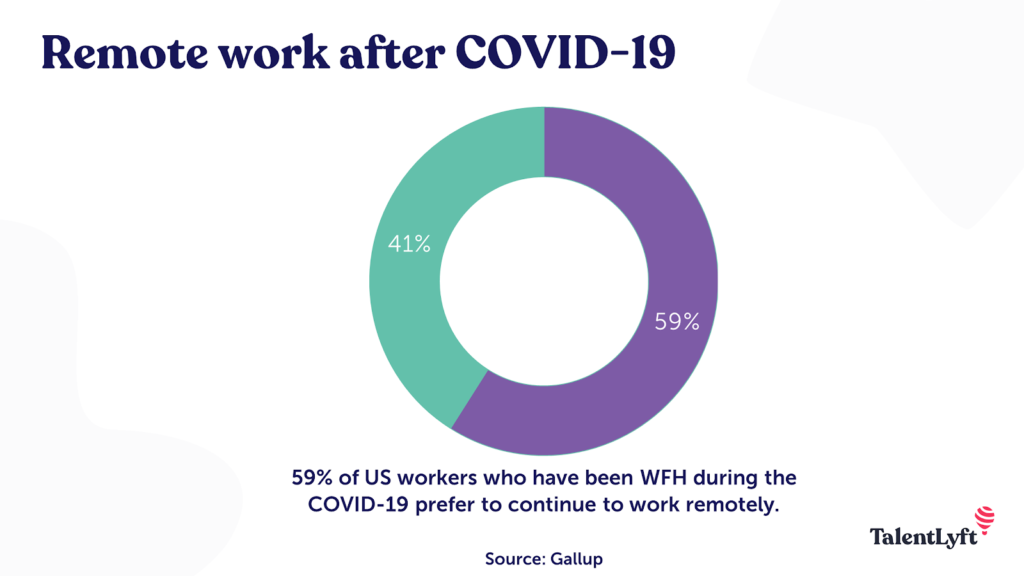If you’re a small business or startup, you know that every advantage counts. That’s why remote work can be so beneficial.
It gives employees the flexibility they need to balance their work and personal lives, while also boosting productivity. While remote work can be controversial, at Chop Dawg, we have been a remote-only company since day one!
Here are five big ways remote work can benefit your small business.
1. Building Flexibility Into How You Do Business
If there’s one lesson businesses have learned from the pandemic, it’s that remote work is here to stay. In order to stay competitive, businesses need to build flexibility into how they operate.
That means creating remote work policies and infrastructure that support employees in working from home (or anywhere). It also means being open to new ways of doing business.
Perhaps you embrace virtual events and meetings. This can also include anything from allowing employees to work from home a few days a week to setting up an entirely remote workforce.
By being flexible and adaptable, businesses can not only survive but thrive in the new normal. After all, the only constant in the world of business is change.
Dramatically Reduce Overhead Costs
One way businesses can dramatically reduce overhead costs is by implementing remote work policies. With remote work, employees can work from home or any other location with an internet connection.
This eliminates the need for office space, and it also reduces the costs of utilities and other office-related expenses. Remote work also allows businesses to tap into a global pool of talent, which can help to reduce labor costs.
In addition, remote work can help to improve employee productivity and satisfaction, both of which can lead to higher profits. As a result, remote work is a win-win for businesses and employees alike.
Implementing remote work policies can help businesses to reduce overhead costs while also boosting employee morale and increasing profits.
3. Boost Employee Recruiting

In today’s business world, the ability to attract top talent is more important than ever. A company’s success depends on its ability to find and keep the best employees.
One way to improve employee recruiting and retention is to offer remote work options. Remote work allows companies to tap into a larger pool of potential candidates.
In days gone by, if companies wanted to hire someone from another state or country, many would finance the entire move of their employee. This might include costs like transporting them and their family and shipping all of their belongings.
This meant that many small businesses, which did not have the funds to do that, did not really have the option to attract a global pool of talent. These days, more businesses than ever have that option.
4. Beat BackThe Great Resignation With Remote Work
These days, more people are switching jobs or leaving the job market entirely than ever before.
While you see many headlines villainizing workers, few of them actually talk about the real implications of this for businesses, by the numbers.
The bottom line is that having low employee retention is incredibly expensive for businesses.
According to Gallup data, US businesses lose about a trillion dollars a year to voluntary turnover. They report:
The cost of replacing an individual employee can range from one-half to two times the employee’s annual salary — and that’s a conservative estimate. So, a 100-person organization that provides an average salary of $50,000 could have turnover and replacement costs of approximately $660,000 to $2.6 million per year.
And these numbers do not even touch the problems which are less reliably quantifiable. Having a high turnover rate means that you more or less cannot build a company culture and a cohesive team that knows how to work together.
In many circumstances, if one highly valuable employee leaves, others will follow. They may even take some of your customers with them.
Simply put, keeping employees for the long haul whenever possible is simply good business. You do this by keeping them happy.
5. Reap the Benefits of Happier Employees
Employees want remote work. A large survey even showed about a quarter of workers said that they would take a lower paying remote job over a higher paying in person one.
While many have demonized those who seek remote work, in the current climate, it makes sense that American workers want the flexibility of it.
In many other wealthy countries, workers are guaranteed weeks of paid vacation every year, family leave, and numerous benefits.
American workers have none of those things. Without the benefits of remote work, many Americans simply do not have the time to see to many basic human needs, like maintaining personal health or building families.
This may be contributing the general trend of declining birth rates that we see in places like Japan and the US.
On the less extreme end of things, employee burnout negatively effects both employees and organizations. LinkedIn reports:
Burnout often leads to disengaged employees, who cost their employers 34% of their annual salary as a result. Burned out employees are 2.6x more likely to look for employment elsewhere. In high-pressure firms, healthcare costs are 50% greater than at other organizations.
The bottom line is that it benefits organizations immensely to keep employees mentally well and invested long-term. Remote work can help with this in some instances.
Final Thoughts on the Benefits of Remote Work for Small Businesses
While remote work is not possible for all types businesses, it offers a lot of potential benefits in the realm of office work.
It can save your business a lot in the long run. No longer paying rent, utilities, and to maintain an office space are incredibly attractive to many businesses for good reason.
Also, in these difficult times, many workers are demanding this arrangement. Ultimately, any successful business has to provide what the market demands to attract customers, clients, and talent.
Even if you personally do not prefer remote work, it is critical to understand why many people and organizations do in the current climate.
What do you think? Comment below.
Since 2009, we have helped create 350+ next-generation apps for startups, Fortune 500s, growing businesses, and non-profits from around the globe. Think Partner, Not Agency.
Find us on social at #MakeItApp’n®

















